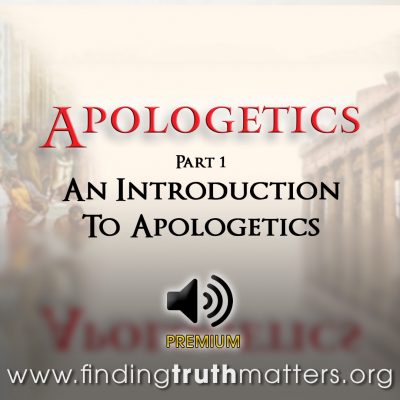home > articles > Ethics > If It’s Natural, It’s Good, Right?
IF IT’S NATURAL IT’S GOOD, RIGHT?
The Global Environmental Movement has undoubtedly done some great good. Visit cities such as Los Angeles, New Delhi, Shanghai, and you’ll soon realise that water and air pollution is a very serious matter. Anyone who has seen the devastation of massive unregenerated deforestation will readily acknowledge that managing trees in the ground is more critical than many must have realised. Yet, undergirding the Environmental Movement, and its ensuing social policies, is that: natural is best. Many people justly concerned about our ecology have started to notice a large wooden horse on wheels has been pushed into the town square by Environmentalists. And just like the fabled Trojan Horse, this neo-Trojan horse has smuggled something more powerful than an army into our culture: If It’s Natural – It’s Morally Right.

The recent “Stop Kony” campaign YouTube video opens with the profound notion that the most powerful thing in the world is not actually a “thing” it is an idea. This was also the premise for the blockbuster movie: INCEPTION.

IDEAS SHAPE SOCIETY
Ideas shape people, societies, and civilisations. Jesus Christ used an astounding term to describe the place where human thinking takes place: the heart (such as Matthew 9:4). To the ancient Hebrew, the heart was the core of a person. Jesus said that this was where ideas were processed- in the very core of a person. The heart is the place where we most naturally think of as being the engine room of our feelings. The is link between what we think and what we feel. Jesus said that some ideas in human hearts might be evil and that the result would be spiritual defiling (which is why God offers to cleanse the defiled but repentant sinner because of Jesus’ death and resurrection).
For out of the heart come evil ideas, murder, adultery, sexual immorality, theft, false testimony, slander. These are the things that defile a person; it is not eating with unwashed hands that defiles a person.”
Matthew 15:19-20
The Bible continues to place tremendous value on the importance of getting our ideas right. In a world that often celebrates different thinking, it sounds almost out of step with culture for someone to say an idea can be “wrong”. While it’s true that all people are equal, it is not true that all the ideas are equal. The Apostle Paul wrote to the Romans about people who refuse to acknowledge their Creator (Who has the right to command His creation) as having become darkened in their thinking.
¶ Yes, they knew God, but they wouldn’t worship him as God or even give him thanks. And they began to think up foolish ideas of what God was like. The result was that their minds became dark and confused.
Romans 1:21
AN IDEA HAS BEEN SMUGGLED INTO WESTERN THINKING
 But in an almost Inception-like implanting, Western Society has had an idea smuggled in via the neo-Trojan Horse of Environmentalism where “natural” is no longer simply about trees, water, forests, soil, farming – it’s now about moral choices: If it feels ‘natural’, it must be morally right. This is an idea that needs to be challenged.
But in an almost Inception-like implanting, Western Society has had an idea smuggled in via the neo-Trojan Horse of Environmentalism where “natural” is no longer simply about trees, water, forests, soil, farming – it’s now about moral choices: If it feels ‘natural’, it must be morally right. This is an idea that needs to be challenged.
My wife and I enjoy the natural beauty of the Tasmanian wilderness. For the past few years we have hiked much of Tasmania’s wilderness and forests. We deeply appreciate natural beauty. We recognise the high value of conservation efforts in these World Heritage areas.

THE MISUSE OF NATURAL
But even the natural beauty of the bush can sometimes benefit from being tamed. Just because something is natural doesn’t mean that it is perfect. We all have certain natural desires, urges, and motivations. Just because they feel natural – or even if they can be shown to actually be natural – is hardly the grounds for any moral justification of the resultant behaviour of these natural desires, urges or motivations. This is an important point. We are not denying that we actually have natural orientations. Some well meaning Christians have erred by suggesting that people with same-gender attraction can simply choose not to feel this way. Sexual attraction is rarely that simplistic. Yet, similarly, advocates for same-gender sexual attraction have equally erred by adamantly claiming that such attraction is an irreversible orientation. This is simply not the case. Thousands of men, once convinced that they were irreversibly orientated toward same-gender attraction, have found this not to be the case. Two very public examples of this are Joe Dallas (www.genesiscounseling.org), and Sy Rogers (www.syrogers.com).

This unfounded idea is now used repeatedly by those seeking to justify their varied sexual proclivities (which have always been regarded by civil society as immoral). Despite the unchallenged promotion of the idea that homosexuality is “hard-wired” in some – there is no chromosomal, genetic, bio-chemical, brain-wave pattern, cause for same-gender attraction. Without this scientific support for same-gender attraction it is difficult for them to morally justify it. This is where they borrow a largely unchallenged idea from the Environmentalist Movement: natural is right … it feels natural to me, therefore I must be hard-wired this way and that means I can’t help it – thus, it must be morally acceptable.
This type of reasoning is hardly tolerated for other kinds of moral justifications made by murderers, rapists, and thieves. After all, they could similarly claim that they too had overwhelming natural inclinations to behave how they do. But any such claim would be instantly and reasonably dismissed.
NOT ALL NATURAL URGES ARE GOOD
The idea that because a person claims to have a natural, and therefore a pre-determined, sexual attraction orientation, whether it be for an animal, a child, a person of the same gender, or even another man’s wife, that this natural orientation then justifies them acting out this desire is an extremely illogical one and not morally justifiable. This illogical claim (that if someone has a natural urge it must be moral for them to act it out) can be highlighted as such by posing other, obviously immoral acts, such as “Gay-bashing”, as being the natural urge of a homophobe. Simply because a homophobe might have a natural urge to act out his desire to “Gay-bash”, does not make this natural urge morally justifiable.
At the outset of this article I asserted that the idea of “natural” equating to “moral” has largely been advanced by those usually identified with the Environmental Movement. I believe this assertion is easily sustained. Tasmania, where I live, is the birthplace of the “Greens” Political movement. Elected on a platform of protecting native forests, once elected though, Greens Party members have consistently promoted “non-life” policies such as abortion, euthanasia, and same-gender marriage. Perhaps the electorate concerned about the environmental issues of air and water pollution, sustainable forestry, yet not in favour of these non-life policies, should not settle merely for environmental sustainability at the expense of arguably even more important life sustaining issues.
HOW CAN WE DETERMINE ‘MORAL’
While it is unreasonable to argue that what is natural must automatically be regarded as moral, it is not unreasonable to argue that there is a “Natural Law”. Professor J. Budziszewski (pronounced: ‘Boo-joo-shev-ski’), from the University of Texas (Government & Philosophy) has done a masterful job in showing that there must be a Natural Law, and then proceeds to identify this Law, in his book- What We Can’t Not Know (Ignatius Press, 2011). He contrasts the arguments that what is natural must be considered moral with the Natural Law (which reveals what constitutes morality). I recommend this book for a fuller treatment of this subject. Suffice to say that those who advocate that what comes naturally must be moral, such as Professor Peter Singer, undergird their definitions of morality on the foundation of pleasure. Professor Budziszewski points out that this hardly the basis for identifying a universal moral code (the “Natural Law”) because ‘pleasure’ is so subjective.
AN OFFER
But what about those who genuinely feel orientated toward desires that have generally been considered immoral? What we might request is: that “naturalism” no longer be used as a moral justification. But what we might offer is loving support and compassion. This requires greater understanding on the part of those extending such an offer. Perhaps this often unnatural response, by those who understand the Natural Law, toward those who feel compelled to break it, might go a long way to helping those battling with their sexual attraction proclivities to feel the respect they so desperately crave and ache for.
Dr. Andrew Corbett
23rd March 2012
-
Sale!

5 Things We Need To Do To Break Our Church’s 200 Barrier, Premium Audio
$0.95 -
Sale!

A Morning With Izaak Walton – The Compleat Man, Premium Audio
$1.25 -
Sale!

Apologetics Part 1 – Introduction To Apologetics, Premium Audio
$0.95 -
Sale!

Apologetics Part 2 – The Apologetic Arguments For God, Premium Audio
$0.95 -
Sale!

Apologetics Part 3 – The Apologetic Arguments For The Bible, Premium Audio
$0.95







































0 Comments